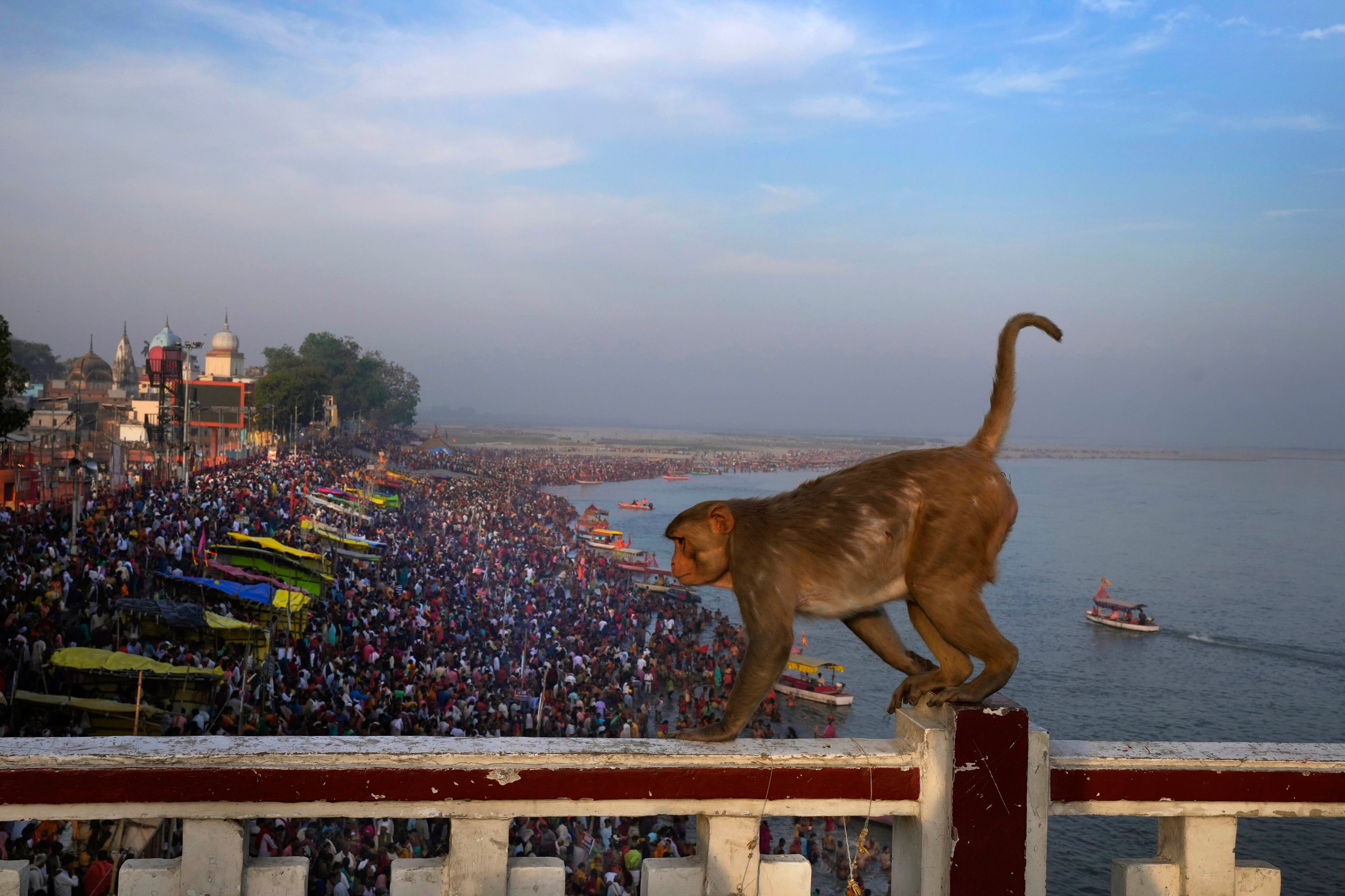40 monkeys killed in suspected case of ‘mass poisoning’ in India
Jaggery and watermelon found from scene where monkey caracasses were found

Carcasses of at least 40 monkeys suspected to have been killed by mass poisoning have been discovered in north India.
Following the discovery of dozens of monkey carcasses in bushes at Hapur city in India’s Uttar Pradesh state, police registered a case and initiated an investigation on Sunday.
Residents alerted the police after some complained of a bad smell from a nearby area in the city on Sunday.
Forest department officials took custody of the dead carcasses to conduct an autopsy to find out the cause of death.
Officials said the monkeys may have been killed en masse after being intentionally poisoned.
During the investigation, police found watermelons and jaggery near the area where the carcasses were found.
“A case has been registered and the cause of their death is being probed,” police said.
Local television stations aired visuals showing jaggery placed on a piece of paper near the monkey carcasses.
The mass killing of the monkeys has sparked shock among local residents.
The uncontrolled population of monkeys in Indian towns and cities has become a menace for residents, as they are often held responsible for significant agricultural destruction, leading to losses for farmers.
Additionally, primates frequently enter people’s homes and businesses to steal food.
Wildlife and animal activists have blamed rapid urbanisation for the destruction of the animals’ natural habitats which has forced them to encroach on human settlements for food and shelter.
In 2016, Himachal Pradesh government declared monkeys in the state to be “vermin” and permitted their culling for a six-month period by incentivising people to kill them.
But the state government’s sterilisation scheme faced widespread criticism from animal activists and animal lovers for promoting killing of the primates.
Join our commenting forum
Join thought-provoking conversations, follow other Independent readers and see their replies
Comments


Bookmark popover
Removed from bookmarks